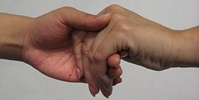|
|
 Acne (1,500) Acne (1,500)
 Addictions (1,500) Addictions (1,500)
 Advice (1,500) Advice (1,500)
 Allergies (1,092) Allergies (1,092)
 Alternative Medicine (1,500) Alternative Medicine (1,500)
 Anti Aging (1,500) Anti Aging (1,500)
 Breakup (1,500) Breakup (1,500)
 Cancer (1,499) Cancer (1,499)
 Dental Care (1,500) Dental Care (1,500)
 Disabilities (1,500) Disabilities (1,500)
 Divorce (1,500) Divorce (1,500)
 Elderly Care (1,498) Elderly Care (1,498)
 Goal Setting (1,500) Goal Setting (1,500)
 Hair Loss (1,500) Hair Loss (1,500)
 Health and Safety (1,497) Health and Safety (1,497)
 Hearing (1,500) Hearing (1,500)
 Law of Attraction (1,499) Law of Attraction (1,499)
 Marriage (1,500) Marriage (1,500)
 Medicine (1,497) Medicine (1,497)
 Meditation (1,499) Meditation (1,499)
 Men's Health (1,500) Men's Health (1,500)
 Mental Health (1,500) Mental Health (1,500)
 Motivational (1,500) Motivational (1,500)
 Nutrition (1,495) Nutrition (1,495)
 Personal Injury (1,499) Personal Injury (1,499)
 Plastic Surgeries (1,500) Plastic Surgeries (1,500)
 Pregnancy (1,496) Pregnancy (1,496)
 Psychology (1,500) Psychology (1,500)
 Public Speaking (1,500) Public Speaking (1,500)
 Quit Smoking (1,500) Quit Smoking (1,500)
 Religion (1,499) Religion (1,499)
 Self Help (1,500) Self Help (1,500)
 Skin Care (1,500) Skin Care (1,500)
 Sleep (1,500) Sleep (1,500)
 Stress Management (1,500) Stress Management (1,500)
 Teenagers (1,492) Teenagers (1,492)
 Time Management (1,500) Time Management (1,500)
 Weddings (1,500) Weddings (1,500)
 Wellness (1,500) Wellness (1,500)
 Women's Health (1,500) Women's Health (1,500)
 Women's Issues (1,500) Women's Issues (1,500)
|
If I could point to one year in my life that I consider to be the worst, it would definitely be 2005. The death of two of my grandchildren, as well as a whole lot of other things that happened is something I wouldn't wish on my worst enemy.
Although it was hard losing my granddaughter Ava, I accepted it with a certain amount of grace. God is far wiser than I am.
However, when my grandson Brayden died about six weeks later, I lost my will to live. I wanted to die, and suicide seemed a very real option.
How could so much tragedy happen in so short a time?
My family is decidedly Christian. We don't take faith lightly. None of us arrived at our faith just by accepting the Bible wholesale without questioning it. I think this is why it irritates me so much when atheists and liberals criticize Christians for taking everything on faith. I don't. Usually, it's that one percent of doubt that forces us to decide whether to accept something on faith.
Losing a loved one is never easy, but there are certain things you can do to heal. If you're still grieving after two years, then you definitely have a serious problem that will destroy your life. Seek the help of a mental health professional.
For the rest of us, here's what you can do:
1. Allow yourself to grieve. Don't be afraid to scream, cry, or get angry. These things are part of the normal grieving process. Let it out. It's preferable to do it in private. You don't want to hurt anyone or yourself.
2. Talk to someone you love and trust. Seek out those who have suffered from the same loss.
3. Although I was grieving myself, the loss I suffered was nothing compared to what my daughters suffered. I let them know that it was OK for them to take as long as they wanted to grieve. I also let them know that eventually they would need to make peace with their situations. I made myself available to them as much as they needed. Having them talk about it helped me heal.
4. Accept you don't know all of the answers. In spite of what atheists want to claim, science can't explain everything. Besides, do you really want to believe that your loved one came up out of the sludge and is now back in the sludge? Now might be the right time to do your due diligence with issues of faith.
I know that all of the soul searching I did during this dark time in my life helped me find answers. It also helped me make peace.
5. Don't give up. As your grief process progresses, you'll have good days and bad days. Don't be afraid to be happy or feel joy. Do you really think your loved ones who've died want you to waste your life grieving over them? Although it is necessary to grieve, there comes a time when you need to move on.
I read my Bible every day. It strengthens my faith and restores my joy. Someone once said, "If your Bible is falling apart, your life is not." I think it might be time for me to buy a new Bible.
|
|
|



